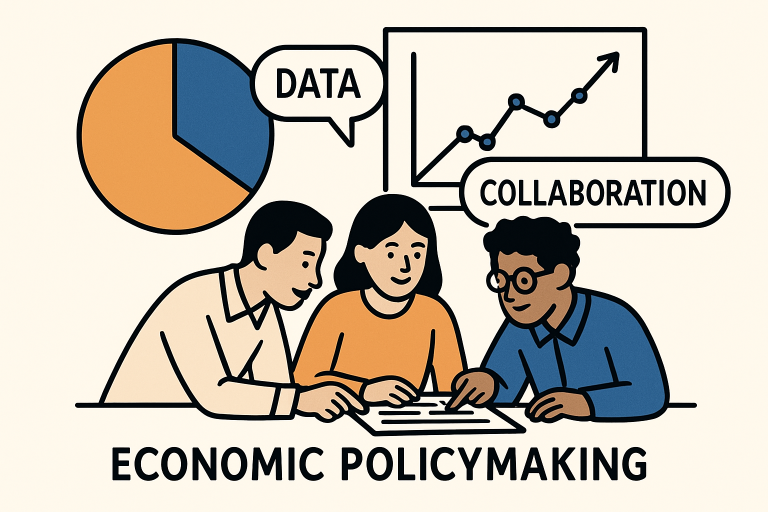Table of Contents
The Role of Economic Advisors in Policy Formation
Behind every high-impact economic policy is a team of advisors providing guidance rooted in empirical analysis and real-world trends. The expertise of advisors like Peter Orszag has shown how governments can bridge the gap between economic theory and actionable strategies. These advisors carefully consider both short- and long-term implications, ensuring major decisions are not only well-informed but also adaptable to shifting conditions.
Economic advisors typically assess a wide range of factors, including labor market dynamics, inflation, and international developments, to recommend policies that drive growth and protect against volatility. By synthesizing large volumes of data and academic research, these experts translate complex information into policies that address both immediate challenges and future uncertainties. Their collaboration with elected officials and public agencies ensures the final policy mix is practical, forward-thinking, and equitable for broad segments of society.
As public pressures mount to address economic inequality, advisors are increasingly called upon to evaluate the distributional impact of policy choices. They leverage powerful economic models to predict how different segments of the population may be affected, promoting fairness alongside efficiency. Their recommendations can make the difference between policies that boost shared prosperity and those that leave vulnerable communities behind.
Expert perspectives are now sought not only during times of crisis, but also in planning for resilient and inclusive growth. By interpreting global economic trends and deploying effective policy instruments, advisors help establish public trust in economic leadership and lay the groundwork for sustainable development.
Data-Driven Decision-Making in Economic Policy
Modern economic policymaking increasingly relies on data-driven insights to anticipate risks and identify growth opportunities. The integration of robust, up-to-date data helps governments respond swiftly to market fluctuations and societal needs. In recent years, access to private-sector data sources has significantly improved the accuracy of economic forecasting, allowing for more precise calibration of fiscal and monetary policies.
The application of big data in tracking consumer behavior, employment trends, and supply chain bottlenecks enables policymakers to move beyond reactive management toward a more proactive posture. Advanced analytics can reveal subtle patterns in the economy, providing decision-makers with an edge in designing timely and effective interventions. This level of granularity ensures that policy shifts are not only evidence-based but also crowd-tested in real time—reducing the lag between analysis and implementation.
Aside from government agencies, collaboration with academic researchers and industry leaders further enriches the policymaking process. These partnerships bring diverse perspectives to the table and encourage the development of innovative solutions to complex problems.

Fiscal Resiliency in Uncertain Economic Climates
The ever-present risk of economic shocks—be they from geopolitical conflict, rapid inflation, or sudden recession—has highlighted the importance of building resilient public finances. Fiscal resiliency refers to the ability of countries to construct policies and safety nets that enable them to weather economic storms without excessive disruption to growth or social welfare. Key elements of a resilient fiscal stance include maintaining prudent debt levels, building robust savings during good times, and designing automatic stabilizers, such as unemployment insurance and targeted stimulus measures.
Governments that prioritize resiliency are better positioned to provide sustained support for infrastructure, healthcare, and education, even as external conditions fluctuate. By planning for contingencies and pursuing countercyclical spending, these nations safeguard their ability to respond decisively in times of crisis. Long-term fiscal sustainability further reinforces investor confidence, lowering borrowing costs and enhancing economic stability over time.
International organizations, such as the International Monetary Fund, offer extensive guidance and case studies on how fiscal resilience can be achieved through thoughtful policy design. Adaptable economic frameworks, supported by strong governance, are pivotal in navigating periods of uncertainty while protecting the most vulnerable citizens.
Case Study: Implementing Effective Economic Strategies
Learning from real-world examples helps reveal the practical steps and subtle considerations that underpin successful economic policies. For instance, during the 2008-2009 global financial crisis, several countries heeded expert advice and implemented aggressive fiscal and monetary interventions that stabilized their economies and prevented deeper recessions.
One standout example can be found in South Korea’s approach to economic uncertainty. South Korea’s blend of fiscal stimulus, targeted support for small businesses, and investment in digital infrastructure allowed for a swift and robust recovery, setting a benchmark for resilience. This success stemmed from an ongoing commitment to integrating expert economic analysis, harnessing high-quality data, and remaining agile in implementing policy shifts.
Similarly, Scandinavian countries have long demonstrated the merits of combining expert guidance with robust safety nets and proactive data collection. Their ability to adapt policies in response to emerging challenges offers international policymakers a useful blueprint for managing uncertainty with confidence and transparency.
Conclusion
Crafting effective economic policies demands the combined power of expert insight, real-time data integration, and a foundational commitment to fiscal resiliency. By learning from leading economic minds and studying successful international examples, governments can design strategies that promote both stability and growth. These principles, championed by trusted advisors and grounded in real-world outcomes, will continue to shape economies for generations to come.

